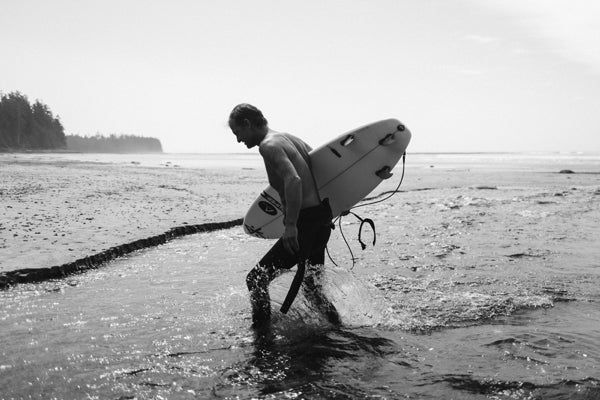
Part 1. The science of survival
Deep within the recesses of our minds resides a powerful, primal creature. It is emotion, it is motivation and it is instinct. It reacts without thinking. Its primary function is survival.
Meet the limbic system, the oldest part of our brain. It developed in a time when we were hunted by sabre tooth tigers and hasn’t developed much since. It is an incredible survival mechanism which keeps us alive and is responsible for triggering the stress response otherwise known as “the fight or flight response” when it thinks we’re under threat.
Without this part of the brain, we wouldn’t last long. The prefrontal cortex which is involved in complex behaviour and strategic planning—think of it as your conscious mind —is a much younger area and requires a lot more energy to function, so is consequently much slower.

If you’ve ever reflexively caught a falling object or leapt back out of the way of a car hurtling towards you, reacting seemingly without thinking about it, this is the primal or animal part of the brain reacting. Fight or flight is triggered, moving the body to safety.
I have come to rely on this animal instinct when out in the field, its ability to move me out of the way of a falling rock or to pick up on changes in the environment around me. This often triggers a gut feeling which, when I listen, shows me the weather is changing or a group of activists are becoming emotionally charged and it's time to get myself and my team out of there.
The thing with the animal part of our brain is that it’s still stuck in a time when our cave (wo)man ancestors lived very primitive lives. The fight or flight response was designed as a quick-hit safety mechanism to prepare their bodies to fight a predator or to run away. It was never designed to be switched on all the time.

The primal animal mind is confused in the modern world. Most of us don’t necessarily face as many physical threats as our ancestors once did, but we do face social threats. The animal within us cannot differentiate between life and death scenarios, and running late to a board meeting, sitting an exam, or even viewing images on social media that trigger us to compare our lives with someone else's—the response triggered in the body is the same. The modern world is so fast paced and connected, with so many stimuli around us all the time, so we run the risk of being triggered and wired all the time.
What does this mean?

In the fight or flight response hormones are released, causing a cascade effect that speeds up many of the body's functions: speeding up your heart rate, priming muscles, heightening your senses. But to achieve this superhuman state, the body has to use all of its energy resources to do these things. This means taking precious resources away from the everyday bodily functions such as digestion and the immune system, which is why people with chronic stress often have bowel issues and a higher chance of developing an autoimmune disease. We’re finding out now that stress has been factored as the root cause of many diseases.
On the next blog post we’ll take a look at ‘The Art of Resilience,’ where we take a look at how the challenges you overcome on your wilderness adventures can be translated into everyday life and ‘Mind of a Survivor’, some simple tips for how to boost resilience and learn to manage the inner animal.

About Megan Hine
Megan Hine is a world-renowned survival consultant, celebrity expedition leader, adventure catalyst, author, and VSSL Voyager! Her vast wealth of experience and knowledge, gained from leading hundreds of expeditions and consulting for TV survival shows across the globe has given her an incredibly unique perspective into the "Mind of a Survivor".
The demand for Megan's insight into human behaviour led to the release of a monthly subscription series for exclusive content on this topic. She not only takes a deeper, more personal dive into her experiences and how they've shaped her perspective, but also (and more importantly) how they can shape you!
Sign up for Megan's course here:
To Follow Megan @megan_hine




Leave a comment
This site is protected by hCaptcha and the hCaptcha Privacy Policy and Terms of Service apply.